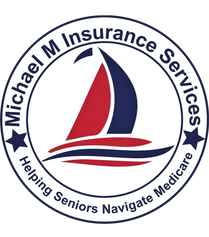A Little Guidance Can Save You a Lot of Headaches
Turning 65 is a big milestone. But it also comes with a big question mark for many people: “What do I do about Medicare?”
With all the parts, plans, deadlines, and choices, it’s no wonder that thousands of new enrollees make preventable mistakes every year — mistakes that can lead to higher costs , gaps in coverage , or lifetime penalties .
The good news? Most of these issues are easy to avoid if you know what to look for ahead of time.
In this article, we’ll cover the most common Medicare mistakes people make — and more importantly, how you can avoid them . Whether you’re just starting to research or you’ve already received your red, white, and blue card, this guide will help you make smart, confident decisions.
Missing Your Medicare Enrollment Window
What Happens:
Some people delay enrolling in Medicare because they’re not sure when to sign up — or they assume they’ll be automatically enrolled. But if you miss your Initial Enrollment Period (IEP) , you could face late penalties and a delay in coverage .
How to Avoid It:
Your IEP begins 3 months before the month you turn 65 , includes your birth month, and ends 3 months after .
- If you’re already receiving Social Security, you’ll be automatically enrolled.
- If not, you need to enroll yourself through the Social Security Administration.
- If you or your spouse are still working and have creditable employer coverage , you may be able to delay enrollment without penalty — but check the rules carefully.
Assuming Medicare Covers Everything
What Happens:
Many people think Medicare is “free” or that it covers 100% of medical costs. Unfortunately, that’s not true.
- Part A has deductibles and coinsurance.
- Part B has a monthly premium, deductible, and 20% coinsurance with no cap .
- Original Medicare doesn’t cover prescriptions, dental, vision, hearing , or long-term care.
How to Avoid It:
Understand what Medicare does and doesn’t cover, and consider adding coverage:
- A Part D plan for prescriptions
- A Medicare Supplement (Medigap) plan to cover out-of-pocket costs
- Or a Medicare Advantage (Part C) plan that bundles benefits together
Not Signing Up for Prescription Drug Coverage
What Happens:
Even if you don’t take any medications now, skipping Part D can cost you later. Medicare charges a lifetime penalty if you go 63+ days without “creditable” prescription drug coverage.
How to Avoid It:
Enroll in a Part D plan during your Initial Enrollment Period — even a basic plan with low premiums. This avoids the penalty and gives you drug coverage if you need it unexpectedly.
Choosing a Plan Without Checking Your Doctors or Medications
What Happens:
Some people enroll in a Medicare Advantage or Part D plan based on the lowest price — only to find out their doctor is out of network or their medication isn’t covered.
How to Avoid It:
- Use the Medicare Plan Finder to search plans by your medications and pharmacy .
- Call your doctor’s office or check online to confirm they accept the plan you’re
considering. - Review the plan’s formulary (list of covered drugs) before enrolling.
Assuming You Can Switch Plans Anytime
What Happens:
Medicare only allows changes during certain times of year. If you enroll in a plan that doesn’t meet your needs, you might have to wait months to fix it.
How to Avoid It:
Know your key enrollment periods:
- Initial Enrollment Period (IEP): When you first turn 65
- Annual Enrollment Period (AEP): Oct 15–Dec 7 each year
- Medicare Advantage Open Enrollment: Jan 1–Mar 31 (limited options)
Pick carefully and ask for help before enrolling — especially if you’re new.
Thinking Medicare Advantage and Medigap Work Together
What Happens:
People often assume they can get a Medicare Advantage plan and a Medigap policy for extra protection. But that’s not allowed.
How to Avoid It:
You must choose either:
- Original Medicare + Medigap + Part D or
- Medicare Advantage (which usually includes drug coverage)
Don’t try to combine both — it will result in your Medigap application being rejected or cancelled.
Ignoring the Annual Notice of Change (ANOC)
What Happens:
Each fall, your Medicare Advantage or Part D plan may update:
- Premiums
- Drug coverage
- Doctor networks
- Copays
If you don’t review these changes, you might be caught off guard in the new year.
How to Avoid It:
- Look for the Annual Notice of Change (ANOC) in September.
- Compare your current plan to other available options.
- Switch during Annual Enrollment (Oct 15–Dec 7) if needed.
Not Getting Help From a Trusted Advisor
What Happens:
With so many plans, rules, and deadlines, it’s easy to make a choice that doesn’t really fit your health or budget. Unfortunately, many people try to figure it all out alone or rely on random call centers.
How to Avoid It:
Work with a licensed, local Medicare advisor who:
- Understands the plans in your area
- Takes time to learn your needs
- Doesn’t pressure you to enroll
A good advisor can help you avoid the mistakes listed in this blog — and maybe a few more you didn’t even know existed.
Review Your Plan Every Year
Even if you’re happy with your current coverage, your health or the plan’s terms might change from year to year.
Take time each fall to:
- Compare plans
- Review your prescriptions
- Check your doctors and pharmacies
- Look at any premium or copay changes
Just a few minutes of reviewing could save you hundreds — or prevent a coverage gap you didn’t see coming.
Final Thoughts: You Don’t Need to Get This Perfect — You Just Need to Be Informed
Medicare isn’t simple. Even people who’ve worked in healthcare for years can feel overwhelmed when it comes time to choose a plan.
But you don’t need to be perfect — you just need to be informed and proactive . By learning about these common Medicare mistakes and how to avoid them, you’re already ahead of the game.
And if you’d rather talk it through with someone who knows the ins and outs and keeps things calm and simple — I’d be honored to help.
Because the goal isn’t just to sign up for Medicare.The goal is to feel good about the decision you made.
FAQs
How to Avoid It:
I’m Turning 65, can’t I just sign up for medicare whenever I want to?
No, You have a 7 month window to sign up, the 3 months before your birthday, your birthday
month and the 3 months after your birthday.
I don’t take meds, do I still have to have an Rx Plan?
Yes, if you don’t enroll in a Part D plan when first eligible you will receive a lifetime penalty.
I don’t need Medicare, I have employer coverage.
Not so fast, if your employer has under 20 employees you will have to sign up for Medicare.

